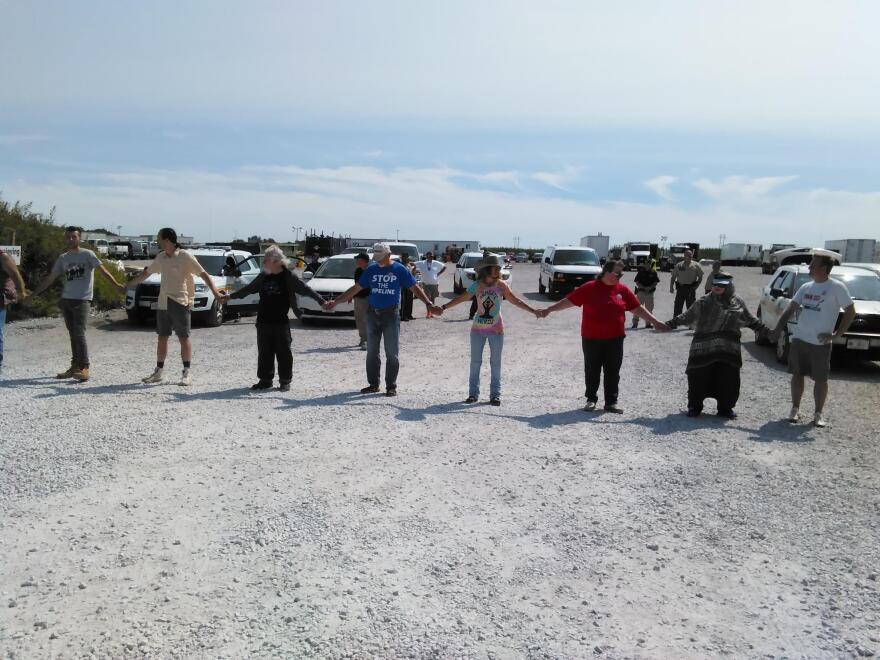Legal challenges so far have not been an effective tool in the fight to stop construction of the Dakota Access Pipeline in Iowa. But pipeline opponents say they have a new strategy.
The plan is for teams of about five protesters to deploy all along the pipeline route to block equipment and vehicles. Ed Fallon of Bold Iowa says these groups are called Bold Action Teams, or BATs.
A BAT will function autonomously, deciding as a group when to peacefully demonstrate. Right now only 30 or so people have joined a BAT team, but that number is expected to grow.
"If you have enough people stepping forward to do with we stop it," says Fallon. "Law enforcement is limited and they can only be so many places at once."
When law enforcement arrive, BAT team members have the option of staying to risk arrest. They can also leave and possibly block another segment of the pipeline.
On Tuesday, the first BAT team interrupted construction for an hour in Webster County, and then went to Boone County to stop construction for another 20-30 minutes. Fallon says the group included himself, a nurse who had just gotten off her night shift, a landowner, and a woman with her dog.
"It was probably the first dog that's ever blocked construction equipment along the pipeline route," says Fallon.
In a memo to employees last week, Dakota Access’s parent company Energy Transfer Partners said the pipeline is nearly 60 percent complete and that it's, "Committed to completing construction and safely operating the Dakota Access Pipeline within the confines of the law."




